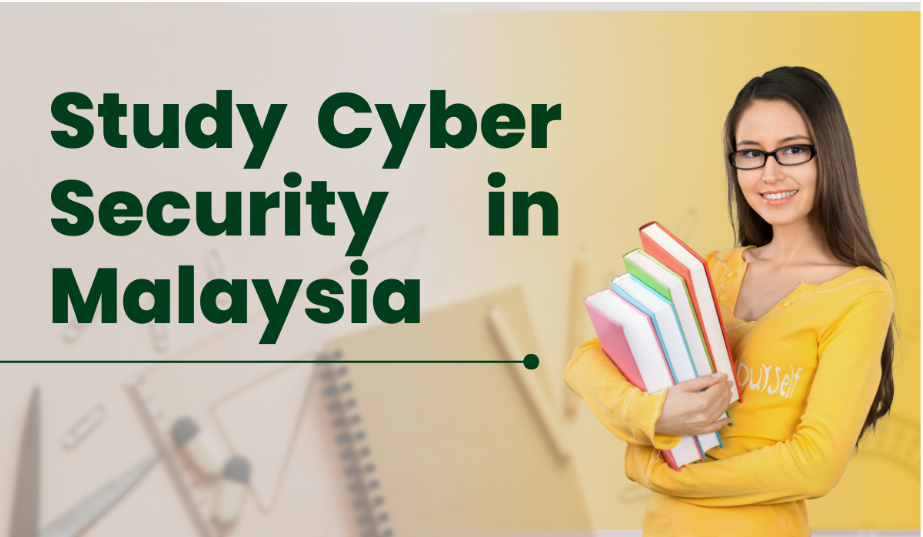The demand for cybersecurity professionals has skyrocketed in recent years, driven by the increasing number of cyber threats and the rapid digitalization of businesses worldwide. As more organizations recognize the critical need for robust cybersecurity measures, the demand for skilled professionals in this field continues to grow. For those considering a career in cybersecurity, Malaysia offers a unique blend of quality education, strategic location, and promising job opportunities. This article explores why you should study cyber security in Malaysia, outlining the benefits, programs available, and career prospects for graduates.
1. Understanding the Importance of Cybersecurity Education
Cybersecurity is more than just a technical field; it is a critical component of modern digital infrastructure. As cyber threats evolve and become more sophisticated, the need for cybersecurity experts who can protect sensitive data and maintain secure systems becomes increasingly vital. To study cyber security in Malaysia means equipping oneself with the skills needed to defend against these threats in both local and global contexts.
Malaysia has emerged as a hub for cybersecurity education in Southeast Asia due to its strategic location and emphasis on digital transformation. The country’s educational institutions offer a range of cybersecurity programs designed to prepare students for the complexities of the digital world. These programs cover a wide range of topics, from network security and ethical hacking to risk management and digital forensics.
2. Top Cybersecurity Programs in Malaysia
When choosing to study cybersecurity in Malaysia, it’s essential to select a program that meets your academic and career goals. Here are some of the top programs available in the country:
a. Bachelor of Computer Science (Cyber Security): Offered by several institutions, including Universiti Malaya (UM) and UTM, this program provides a comprehensive foundation in computer science with a specialization in cybersecurity. Courses typically cover areas such as network security, cryptography, ethical hacking, and information security management.
b. Master of Information Security: For those looking to advance their knowledge and specialize further, the Master of Information Security program is an excellent choice. Universities like APU and MMU offer this program, which focuses on advanced topics such as digital forensics, cyber law, and secure software development.
c. Diploma in Cyber Security: This program is ideal for students who want to enter the cybersecurity field quickly. A diploma in cybersecurity typically takes two years to complete and covers essential topics such as network defense, system security, and cyber threat analysis.
d. Certifications in Cyber Security: In addition to degree programs, Malaysian institutions also offer professional certifications in cybersecurity. These certifications, such as Certified Information Systems Security Professional (CISSP) and Certified Ethical Hacker (CEH), provide specialized skills and are recognized globally, enhancing a student’s employability in the cybersecurity industry.
3. Career Opportunities and Job Prospects After Studying Cybersecurity in Malaysia
Graduating with a degree in cybersecurity from a Malaysian institution opens up a wide range of career opportunities:
a. Cybersecurity Analyst: Cybersecurity analysts are responsible for monitoring an organization’s networks for security breaches and investigating any violations. They install software, such as firewalls and data encryption programs, to protect sensitive information and help develop the organization’s security policies.
b. Ethical Hacker: Also known as penetration testers, ethical hackers are employed to test and evaluate the security of an organization’s IT systems by attempting to exploit vulnerabilities. This proactive approach helps organizations strengthen their defenses against actual cyber attacks.
c. Information Security Manager: Information security managers are responsible for overseeing and coordinating an organization’s information security policies and procedures. They play a critical role in safeguarding an organization’s information assets and ensuring compliance with regulatory standards.
d. Digital Forensics Expert: Digital forensics experts specialize in investigating cybercrimes. They analyze digital evidence from computers, mobile devices, and networks to uncover how a security breach occurred and to assist in legal proceedings.
e. Cybersecurity Consultant: Cybersecurity consultants advise organizations on how to protect their information assets and minimize security risks. They conduct assessments, provide recommendations, and help implement security measures to safeguard against cyber threats.
4. Preparing for a Successful Cybersecurity Career in Malaysia
To maximize the benefits of studying cybersecurity in Malaysia and secure a successful career, students should consider the following tips:
a. Gain Practical Experience: Hands-on experience is crucial in the field of cybersecurity. Engage in internships, participate in cybersecurity competitions, and take advantage of lab work and practical assignments to build your skills.
b. Stay Updated with Industry Trends: Cybersecurity is a constantly evolving field. Stay informed about the latest threats, technologies, and best practices by following industry news, attending webinars, and participating in professional organizations.
c. Build a Strong Professional Network: Networking is essential in any field, including cybersecurity. Connect with peers, professors, and industry professionals through seminars, workshops, and online forums to expand your network and learn from others.
d. Obtain Relevant Certifications: In addition to your degree, obtaining relevant certifications can enhance your credibility and increase your job prospects. Consider certifications such as CISSP, CEH, and CompTIA Security+ to demonstrate your expertise.
e. Develop Soft Skills: While technical skills are critical, soft skills such as communication, problem-solving, and critical thinking are equally important in cybersecurity. These skills will help you work effectively in teams, manage projects, and communicate complex information clearly.
Conclusion
Choosing to study cybersecurity in Malaysia offers a wealth of opportunities for students looking to enter this dynamic and in-demand field. With a strong emphasis on quality education, affordable costs, and a thriving cybersecurity industry, Malaysia is an excellent destination for aspiring cybersecurity professionals. By taking advantage of the diverse programs and resources available, students can prepare themselves for a successful and rewarding career in cybersecurity.
Read More: Master Degree in Malaysia

